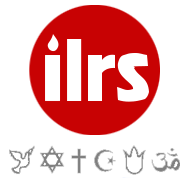Providing hope
“Providing hope”
Celebration of 100 years of Religious Socialism
ILRS Seminar in Stockholm
The International League of Religious Socialists (ILRS) held a seminar in Stockholm on 100 years of international religious socialism (August 30th-September 1st 2024).
Hosted by the Faith and Solidarity movement of the Swedish Social Democratic Party with 2,500 members, the seminar was attended by delegates from Sweden, Norway, Finland and Spain.
The first day included working sessions with the mayor of Stockholm, Karin Wanngård, who spoke, among other things, about public policies on rental housing, which limit prices, as well as determined action to prevent the ghettoization of neighborhoods with a large immigrant presence, from an inclusive perspective. In Sweden, many immigrant children have a recognised social status.
Other speakers were Sara Kukka-Salam, the young president of the Swedish branch of ILRS, Faith and Solidarity, who spoke about the priorities of her movement and who is the mayor of Solna, a city in the Stockholm conurbation with 81,000 inhabitants. Mathias Tegnér MP discussed the challenges facing the European Union, and Oscar Ernerot, Secretary General of the Olof Palme International Centre, spoke about the powerful and wide-ranging international activity in the expansion and strengthening of democracy in the context of the retreat from autocratic regimes.
On Saturday, we participated in a demonstration in favor of Peace in Gaza with several speakers, among them Daniel Vencu Velasquez Castro MP who denounced: “This is not a war about stopping a military conflict and creating peace. It is a war about making Gaza uninhabitable”. Sara Kukka-Salam concluded: Let me end with words that a Palestinian journalist in Gaza wrote on Instagram; ”Change does not come by luck, it comes by working for change.” So I want to urge all of you who are listening – get involved”.
On the last day, in addition to the participation in the celebration of the Sunday service at the Lutheran Church of Tullinge, with communion under bread and wine, there was a meeting with the vicar Beatrice Lönnqvist, who spoke about the beginning of women’s ordination in the 1950s in the Church of Sweden, to the current situation with about 55 % of the priests being women.
The origin of the ILRS dates back to the 1920s. After the First World War and the Bolshevik Revolution, there was an urgent need for a socialism compatible with democracy in the face of the Soviet Marxist-Leninist model, which disdained freedom, and in the face of Marxist orthodoxy, whose class struggle prevented agreement with the parties and the liberal order. In this context, humanist socialism with an ethical and religious basis was opening the path. In the construction of a socialist programme for the nation, Christian socialism played an important role in the United Kingdom, the Nordic countries, the Netherlands, Austria, Switzerland and Germany. This was the case of Willem Banning, a Protestant pastor who was to become the main ideologue of the Dutch Labour Party. Or R. H. Tawney in the British case.
Successive meetings in Barchem, Netherlands (2/07/1924), Eisenach and Cologne, Germany and Le Locle, Switzerland (1924) led to the founding of the International of Christian Socialists in November 1929. Leaders of this founding stage besides Banning (Netherlands) were intellectuals and theologians such as Paul Tillich (Germany), Martin Buber (Austria), André Philip (France), Herbert Stead (UK), or Leonard Ragaz (Switzerland). The latter was the first president until World War II.
At the beginning of the eighties, with the encouragement of the Social Democratic Party, particularly Olof Palme, the parliamentarian Evert Svenson led a phase of globalisation of the movement with the incorporation of new themes and members, Central America, North America, the Philippines, South Africa, Israel, Palestine and Eastern Europe, after the fall of the Berlin Wall. The movement changed from calling itself Religious Socialists, rather than Christians, to include believing Socialists of any faith. Since the Utrecht Congress (2018) the presidency of the ILRS is held by Spain with M. Angeles Sanz, as president. During this period, the work has been addressed to participate in the spaces of the European institutions and, of course, of the Socialist International, which is an attached organisation.
The ILRS is committed to the objectives of social justice, equality, freedom and peace of social democracy; it mobilises the religious left against the attempt to identify religion with the right or the far right; it helps social democratic parties to deal and mediate with religious actors, it opens religions to political pluralism and it is an area of cooperation between religious and secular people around social democracy. In a world with more inequality and less democracy it’s the turn of “providing hope”.
